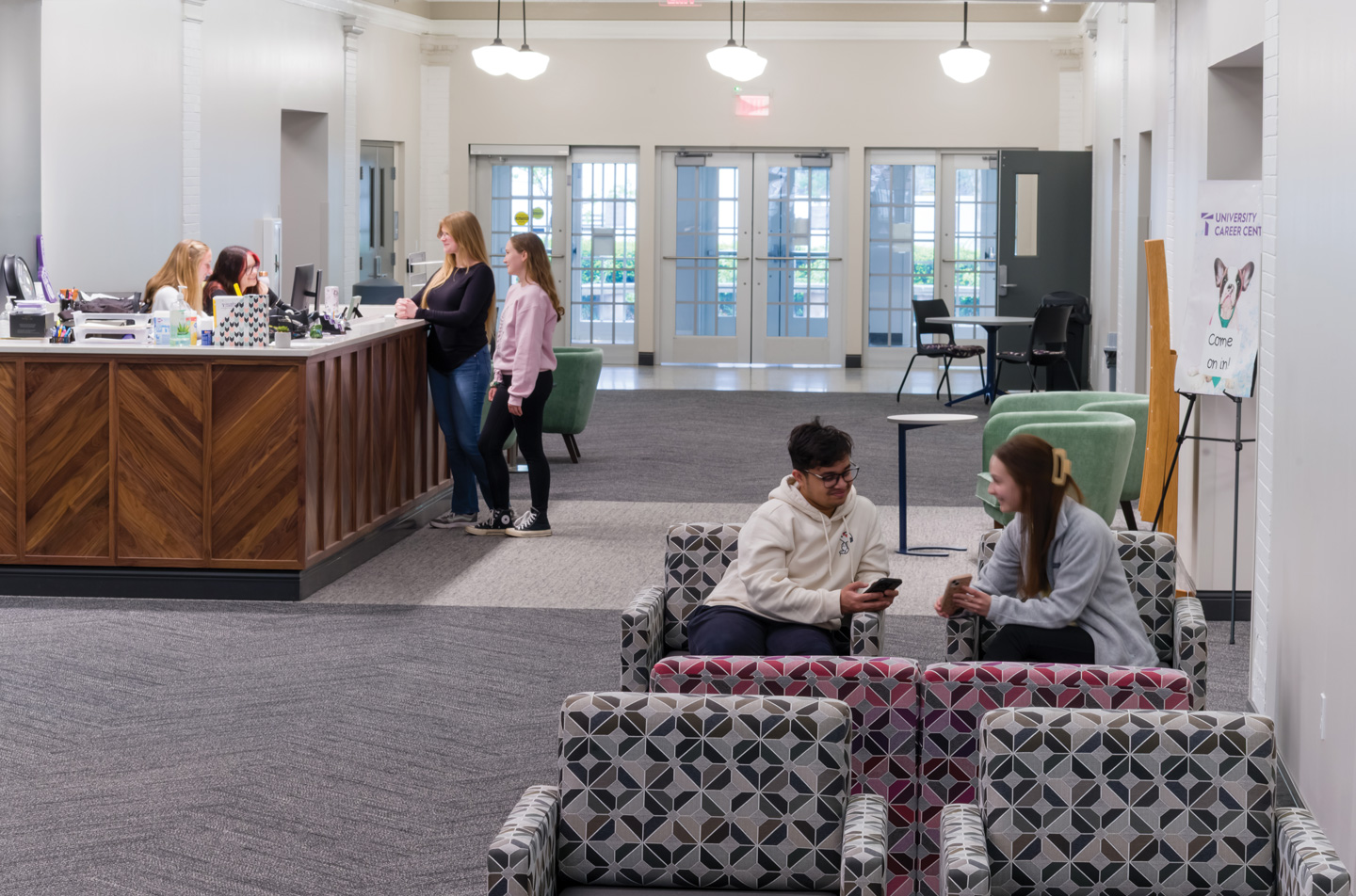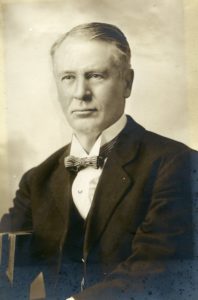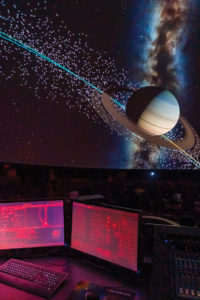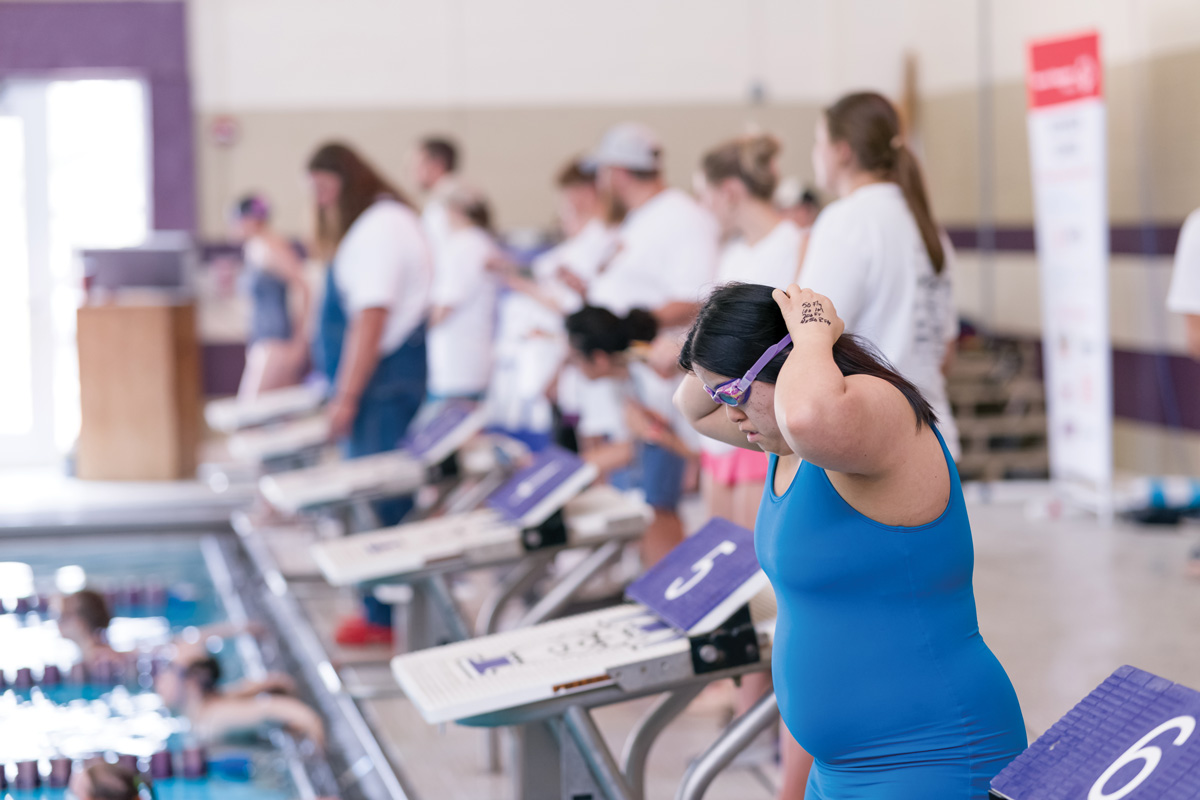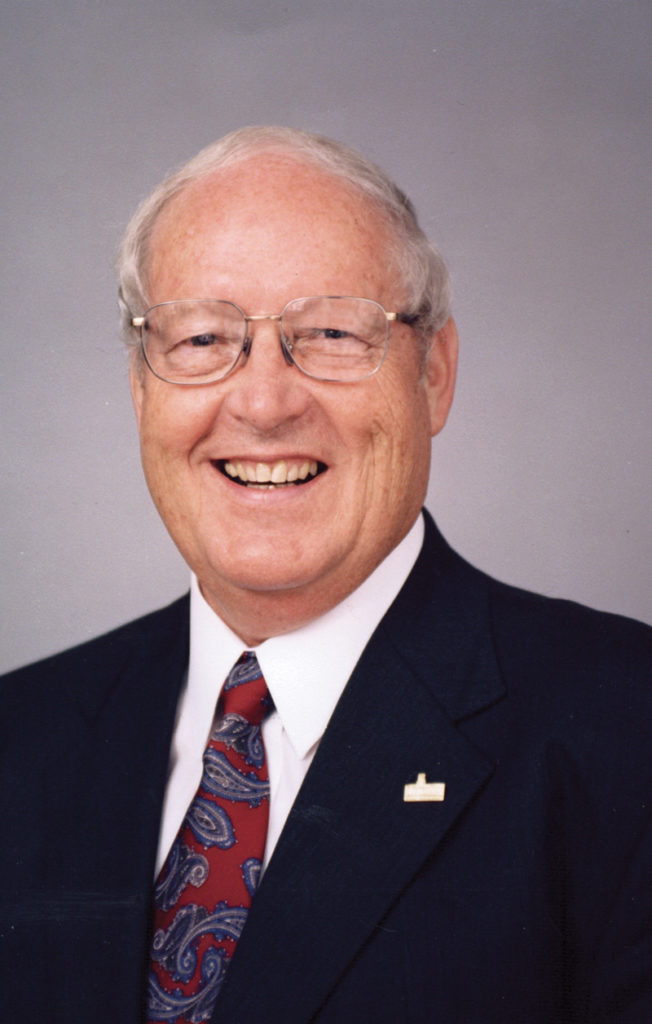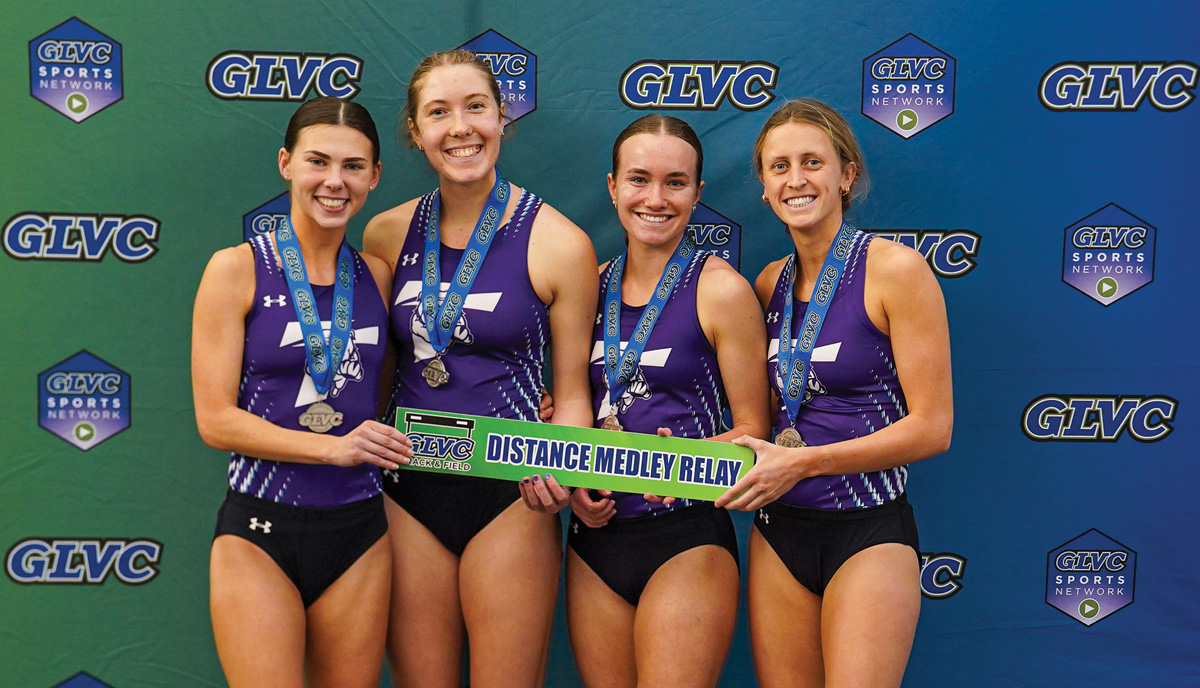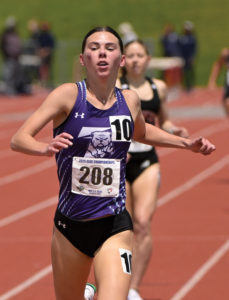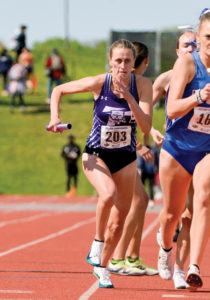One of the oldest buildings on campus has been transformed into the centerpiece of student support.
A lot can happen in 100 years, and Truman’s Kirk Building is a prime example. In its heyday, the structure was the heart of the University. In 1925 – just two years after it opened – Kirk was one of only a handful of buildings on campus, along with Pickler Memorial Library, Science Hall and Ophelia Parrish. Its auditorium was the epicenter of the school, serving as the site of countless events, assemblies and athletic contests.
“The Student Success Center will not only be convenient for students because services are located together, but more importantly, it signals that there are many dimensions of support that contribute to their success at Truman.”
—Ashleigh Harding
director of student success
Higher education surged in the second half of the 20th century, thanks in part to the G.I. Bill, followed by an influx of Baby Boomers. Naturally, the campus blossomed as well, with new construction necessary to support the growing infrastructure demands. While Kirk Building remained near the geographic center of the rapidly expanding campus, its relevance recessed with each passing decade. Pershing Building came along in the 1950s, taking with it intercollegiate athletic contests. The addition of an auditorium to Baldwin Hall in 1959 lured away many of the special events and musical performances, and when the Student Union Building opened in 1966, the social center of campus migrated slightly to the west. Each necessary step of progress unintentionally resulted in Kirk losing a little bit of its identity. It became a house, but not a home, providing a space for departments or programs in need, only to be forgotten when a more logical locale presented itself.
“You can often figure out when someone attended Truman based on what they remember the Kirk Building housing,” said Zac Burden, assistant director of residence life and self-avowed campus history nerd. “Do they remember getting their ID card picture taken there? Do they remember the nursing program being in the building? Did they film Channel 36 news broadcasts there? Did they sign up for housing there? Their experiences in the Kirk Building ‘carbon date’ when they attended. So many things have been there over the years.”
In the past three decades or so, visitors to campus could be forgiven if they wondered aloud while strolling through the quad, “when is that old building coming down?” For its part, Kirk has not gone gentle into that good night, and now its best days may be yet to come.
Truman has a legacy of preserving the past while planning for the future.The concept of old and new coming together can be seen in nearly every campus building, most notably structures such as Pickler Memorial Library and Ophelia Parrish, as well as Violette, Magruder and Baldwin halls. Much like the retooled Greenwood Interprofessional Autism Center, the Kirk Building project goes beyond brick-and-mortar changes. There is a special purpose behind the renovation. In this instance, it’s a statement about what the University values the most: the students.
What’s in the name?
John Robert Kirk was the president of the University for 26 years. An alumnus, he was valedictorian of his class in 1878. After graduation, he was a professional educator and later an attorney before he became the school’s fifth president in 1899. During his tenure, Kirk expanded programs and led the movement to change the school’s status from a normal school to a full-fledged teachers’ college. He also became one of the country’s leaders in teacher education and an innovator and expert in rural education. In addition to the Kirk Building, the iconic Kirk Memorial also bears his name. Other campus tributes include the Kirk Academy
“Throughout our history, the core tenet of the University has been a laser focus on preparing our students for success, from the moment they set foot on campus through launching them to achieve their goals and dreams,” said University President Susan L. Thomas. “Preserving a University landmark is very exciting; however, the truly amazing aspect of the Kirk Building renovation is what it will do for our students and the community.”
Kirk Building is again a hub of campus, now as the home to the new Student Success Center. Truman strategically placed all the most important student resources in one conveniently located building. The Student Success Center is comprised of: the Career Center; Tutoring Services; the Student Health Center; University Counseling Services; Student Access and Disability Services; the Center for Academic Excellence; the Communication Lab; and the Writing Center. Beyond simply housing services in proximity, the Student Success Center offers a collaborative service model, with offices working in coordination to meet a student’s need from entry to exit.
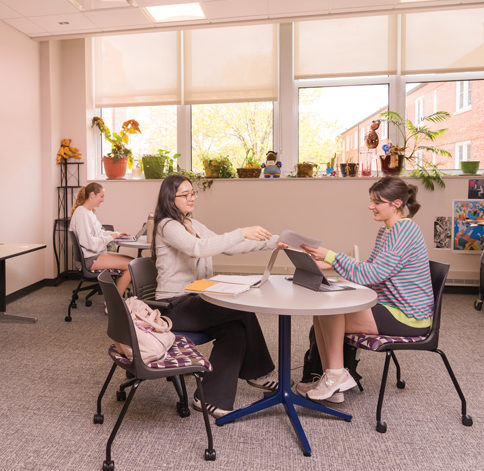 “By these student support services working in conjunction with one another, we will be able to recognize and address student needs from a collaborative approach,” said Ashleigh Harding, director of student success. “The Student Success Center will not only be convenient for students because services are located together, but more importantly, it signals that there are many dimensions of support that contribute to their success at Truman.”
“By these student support services working in conjunction with one another, we will be able to recognize and address student needs from a collaborative approach,” said Ashleigh Harding, director of student success. “The Student Success Center will not only be convenient for students because services are located together, but more importantly, it signals that there are many dimensions of support that contribute to their success at Truman.”
In addition to housing the Student Success Center, the Kirk Building now features dedicated space to provide resources to the community, including workforce development outreach, rural telehealth counseling, and academic outreach workshops. The Sustained Knowledge of Integrated Lifelong Learning Skills (SKILLS) Center builds upon the services of the departments in the Student Success Center, making key components available to the local community.
“When undertaking this project, we very deliberately combined an internal focus on supporting students’ success with an external focus on supporting community members’ success,” Thomas said. “Truman and Kirksville are intertwined. Anything that benefits one also brings prosperity for the other. We have a vested interest in our northeast Missouri home, and we strive to be a positive resource in any way we can.”
While area K-12 students have access to tutoring and advising, adult learners might seek skills to assist with career advancement through non-credit workshops on topics such as digital literacy, computer applications and personal development. Truman students will have the opportunity to be trained to lead and support these community learning opportunities.
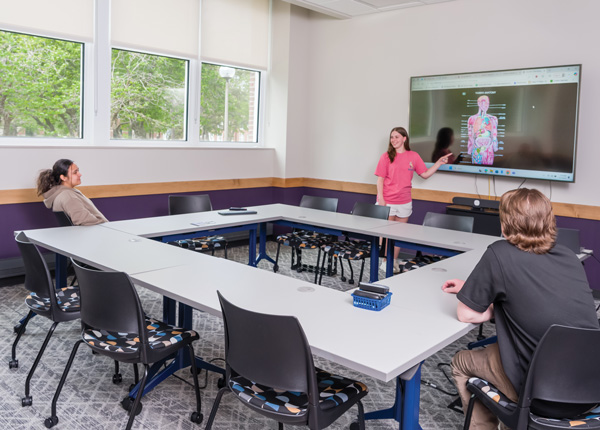 The SKILLS Center will look to collaborate with relevant community partners including: the city of Kirksville, Adair County and other municipalities and counties in the northeast Missouri region; Kirksville Regional Economic Development, Inc., and other economically focused entities; the Missouri Division of Employment Security; and regional health care and social service providers.
The SKILLS Center will look to collaborate with relevant community partners including: the city of Kirksville, Adair County and other municipalities and counties in the northeast Missouri region; Kirksville Regional Economic Development, Inc., and other economically focused entities; the Missouri Division of Employment Security; and regional health care and social service providers.
Considering its scope and scale, the Kirk Building project came together surprisingly fast. First proposed in 2022, a near-complete interior demolition started in fall 2023. A majority of the work was finished within a year, including a massive transformation to the building’s iconic auditorium. While half of the area was repurposed to create a third floor and new office space, the other side is now a 250-person forum. In a nod to its history, some of the building’s original architectural elements were recreated in the remodeled space, and portions of the gym floor were reused as aesthetic accents. The back wall of the newly created forum includes a photo mural of images from Kirk’s storied past.
Much of the funding for the $21 million project came from the state of Missouri at the recommendation of Gov. Mike Parson through the American Rescue Plan Act. Former U.S. Senator Roy Blunt also recommended a $6 million congressionally directed spending grant. In recognition of his support, the SKILLS Center is named in honor of Blunt and his wife Abby.
For a building long cherished in the hearts of students, it’s fitting students will again be at the heart of its new mission. Not so many years from now, alumni will remember Kirk Building as the place where a caring academic advisor helped them map out their path to graduation, or how the Career Center played a role in finding that first “real” job. A local student may think of Kirk Building as their introduction to campus, and how guidance from a tutor made them realize Truman was the right school when it came time for their college decision. Members of the community might recall the workshop they signed up for in retirement and how it opened the door for a second career later in life.
Now renovated and revitalized, Kirk Building has come full circle. It’s ready to reclaim its place as the soul of campus, and the possibilities are endless.
Kirk Building Offices
Center for Academic Excellence
The CAE offers service and support to help students navigate their student journey from orientation to their first year at Truman and beyond. Services include one-on-one academic advising, help with registration, academic planning, transferring credits, and exploring potential majors and minors.
Student Health Center and University Counseling Services
Since 2021, the Student Health Center and University Counseling Services have been operated through a partnership with Complete Family Medicine. As a subsidiary of Hannibal Regional, a not-for-profit health system, these offices have been able to provide additional resources to students, including expanded hours, increased access to a physician and access to off-site providers when needed.
Career Center
From choosing a major to securing an internship or job, the Career Center offers a multitude of services, including career coaching, mock interviews, resume critiques and professional development experiences. It also sponsors the Career and Grad School Week events offered each semester.
Tutoring Services
The Center for Academic Excellence runs a Tutoring Center staffed by Academic Peer Tutors. All tutoring services are free and available for most classes. Students can drop-in or schedule appointments to ask questions, review material and discuss problems with a team of knowledgeable peer tutors.
The Writing Center
The Writing Center serves students, faculty and staff in their efforts to communicate more effectively through writing. With the help of dedicated, competent writing consultants, students can receive assistance during any stage of the writing process, from brainstorming through adding the final touches.
The Communication Lab
Students needing assistance with any type of oral presentation can utilize this service, sponsored by the Communication and Theatre Arts Department. Beyond entry-level speech classes, students may receive help with any presentation. Lab assistants are trained to aid students at any part of the speechwriting process, from narrowing a topic to practicing the speech.
Student Access and Disability Services
This campus resource provides support services to students with disabilities to achieve their academic goals while ensuring compliance with federal and state laws.

